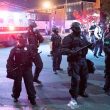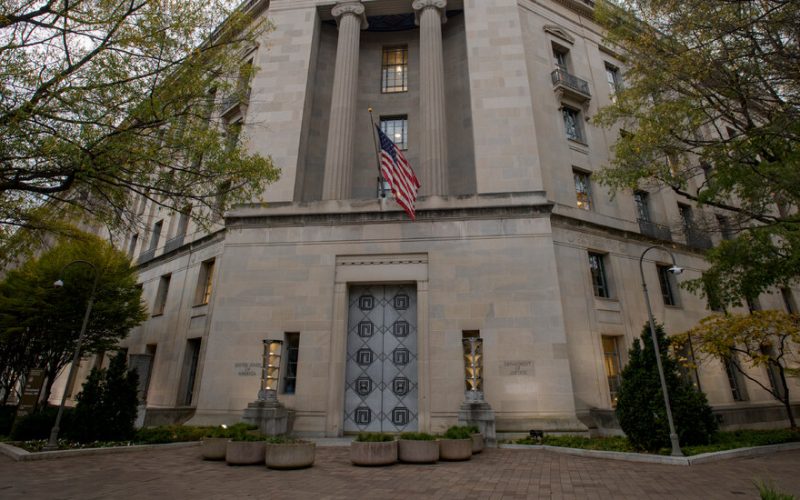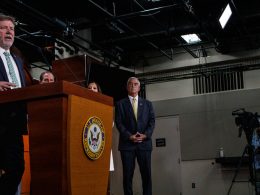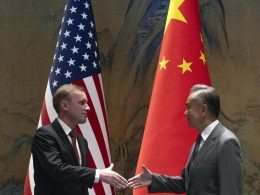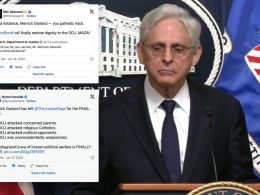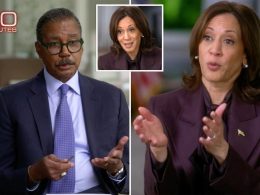In its first 24 hours, the new Trump administration has reached into critical U.S. attorneys’ offices to quickly appoint new interim leaders, signaling a break from past practice that reflects the importance of frontline prosecutors to the administration’s plans.
In three of the most important federal prosecutors’ offices — two in New York City and one in Washington — new acting leaders have been announced. Two of the picks are respected longtime prosecutors; the third is a Trump loyalist who had pushed for the release of Jan. 6 defendants.
It is part of a larger bid by the Trump administration to shake up the highest echelons of government. At the Justice Department’s headquarters, top career officials at critical divisions were reassigned.
The new acting head of the U.S. attorney’s office in Manhattan is Danielle Sassoon, best known for the successful 2023 prosecution of Sam Bankman-Fried for fraud in his cryptocurrency business.
John Durham, a veteran federal prosecutor on Long Island, will lead the U.S. attorney’s office in Brooklyn. Mr. Durham is the son of John H. Durham, the former special counsel who investigated possible government misconduct in previous inquiries into President Trump.
And in Washington, officials announced that Ed Martin, a conservative activist lawyer, would be in charge of that U.S. attorney’s office, which has overseen the 1,500-plus prosecutions related to the Jan. 6, 2021, riot at the Capitol. Mr. Trump granted clemency in nearly all of those cases on Monday. Mr. Martin has served on the board of a group that advocated and raised money for Jan. 6 defendants. In his first official act in the U.S. attorney’s office, he filed a motion to dismiss all of the Jan. 6 cases still pending.
Typically, when a new president is elected, most of the 93 U.S. attorneys from the previous administration resign and, until a replacement is nominated and confirmed by the Senate, their deputies serve in an acting capacity. That changeover period can last months.
In this instance, however, the Trump administration seems determined to quickly place its picks in key posts. The New York and Washington federal prosecutors’ offices tend to handle a host of politically sensitive cases.
Current and former law enforcement officials said the new approach came as a surprise to Justice Department veterans and called it a significant shift from previous transitions because deputies are traditionally moved into those interim positions.
Privately, administration officials have discussed a broader effort to name acting leaders for many more offices as soon as possible. But that goal may face difficulties in identifying dozens of individuals to take temporary assignments, all while Mr. Trump is trying to make major changes at the department.
Mr. Trump signed an executive order on Monday calling for a far-reaching review of the past four years at the Justice Department, to end what he calls the “weaponization” of the department against him, his supporters and conservatives.
At the Justice Department, three of the most senior and influential career officials have been told that they will be reassigned to less important posts, according to multiple people familiar with the moves who spoke on the condition of anonymity to discuss personnel moves that have not yet been made public.
George Toscas, a department veteran who has spent decades working on the nation’s most sensitive national security cases, was among them, the people said. Mr. Toscas has been a key behind-the-scenes adviser in terrorism cases, the Hillary Clinton email investigation, the classified documents investigation surrounding Mr. Trump and other issues.
Bruce C. Swartz, whose decades of expertise on international investigations and extraditions have made him an important adviser in Republican and Democratic administrations, was also reassigned, the people said.
Eun Young Choi was removed from the senior leadership of the national security division, these people said. Ms. Choi, a former federal prosecutor in New York, previously worked as the department’s first director of cryptocurrency enforcement.
Some current and former officials expressed dismay at the moves, noting the depth and breadth of experience of the people being removed from their positions. Some questioned if the speedy nature of the reassignments passed muster with civil service rules, which generally require a much longer waiting period before newly confirmed Justice Department leaders can start moving around personnel.
A Justice Department spokesman did not immediately respond to a request for comment.
One of the major changes being considered is reassigning a significant number of lawyers to handle what the administration hopes to be a big push on immigration cases, as Mr. Trump seeks to increase and speed up deportations.
That would most likely require a transfer of prosecutors, perhaps some from the civil rights division and other units based in Washington, to the handful of U.S. attorney’s offices closest to the southern border, according to a person involved in the initial discussions.
The administration’s precise plans have been kept under wraps to give Mr. Trump’s new team of relatively inexperienced political appointees at the Justice Department time to ensure that competent prosecutors are being placed in vital posts, according to congressional aides who have been briefed on the planning.
So far, most of the officials picked for senior roles at the department have been met with relief by career prosecutors, including two prosecutors at major interim posts: Devin DeBacker, an expert on foreign investment reviews, will run the department’s national security division. Antoinette Bacon, a former federal prosecutor in upstate New York, is being considered to take over the criminal division, according to people familiar with the situation.
Ms. Sassoon, an assistant U.S. attorney in Manhattan since 2016, was part of the prosecution team that won a conviction of Mr. Bankman-Fried, the founder of the collapsed cryptocurrency exchange FTX who was sentenced to 25 years in prison.
A spokesman for the U.S. attorney’s office said Ms. Sassoon, currently the co-chief of the office’s criminal appeals unit, was appointed interim U.S. attorney by the acting attorney general, James R. McHenry III.
Daniel C. Richman, who teaches criminal law at Columbia and is a former prosecutor in the Southern District of New York, said it was unusual “not to proceed down the hierarchy” when selecting an interim U.S. attorney for that office.
“But what the Trump administration has done is put someone in who gives every indication of being a standout assistant in the best traditions of the office,” Mr. Richman said. “This is the balance between wanting to have a clean break with the Biden administration and, at least so far, respecting the culture of the office and its reputation.”
Ms. Sassoon also prosecuted Lawrence V. Ray, who was convicted in 2022 of extortion and sex trafficking related to his abuse of students in his daughter’s dormitory at Sarah Lawrence College. He was sentenced to 60 years in prison.
She is a graduate of Harvard College and Yale Law School and also clerked for Justice Antonin Scalia on the Supreme Court. Ms. Sassoon replaces Edward Y. Kim, who has led the office since December, when Damian Williams, who was the U.S. attorney under President Joseph R. Biden Jr., stepped down.
Ms. Sassoon is expected to serve as interim U.S. attorney for a relatively short time; Mr. Trump’s choice for the post, Jay Clayton, must be confirmed by the Senate.
Mr. Clayton, a lawyer at Sullivan & Cromwell, served during Mr. Trump’s first term as chairman of the Securities and Exchange Commission.
A spokesman for the Brooklyn U.S. attorney’s office said Mr. Durham was appointed on Monday to run the office in an acting capacity. Mr. Durham has worked in the prosecutor’s office for nearly 20 years. He replaced Carolyn Pokorny, who has led the office since last month, when President Biden’s appointee Breon Peace stepped down.
In that role, Mr. Durham has led teams of prosecutors and investigators that arrested and convicted hundreds of MS-13 gang leaders, members and associates. Named last year to lead the office’s Long Island division, Mr. Durham has also prosecuted critical public corruption and civil rights cases. He is a graduate of Holy Cross and the University of Connecticut law school.
Mr. Durham would serve until Mr. Trump’s selection for U.S. attorney in Brooklyn is confirmed by the Senate. Mr. Trump has said his pick is Joseph Nocella Jr., a Long Island judge.
Kitty Bennett contributed research.
